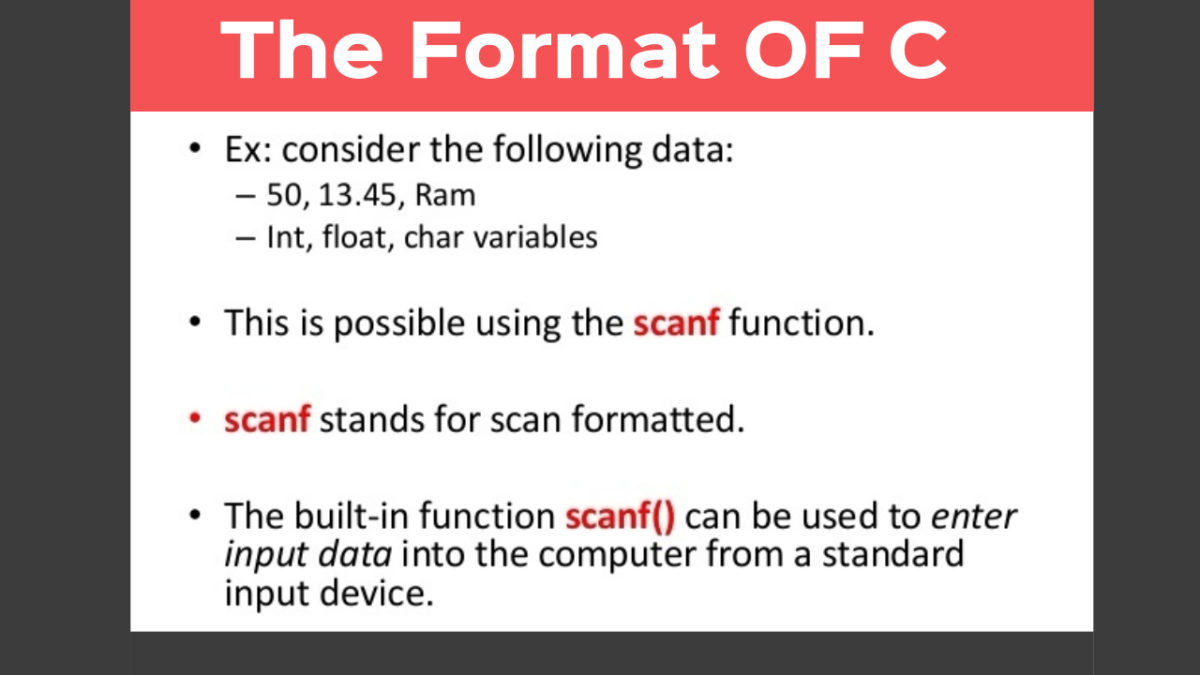- Statements are terminated with semicolons
- Indentation is ignored by the compiler
- C is case sensitive – all Keywords and Standard Library functions are in lowercase
- Strings are placed in double quotes
- Newlines are handled via \n.
- Programs are capable of flagging success or error, those forgetting to do so have one or other chosen randomly!
Semicolons:
Semicolons are very important in C. They from a statement terminator – they tell the compiler where one statement ends and the next one begins. If you fail to place one after each statement, you will get compilation errors.
Free Format:
The spaces and tabs are ignored and can be easily placed any where.
Case Sensitivity:
Compiler will give the compilation error if it finds “Int”, “INT” or any other variation will in int because C is a case sensitive language. All of the 40 or so C Keywords are in lowercase.
Variables:
- Variables must be declared before use immediately after “{“
- Valid characters are letters, digits and “_”
- First character cannot be a digit.
- 31 characters recognized for local variables (More can be used, but are ignored).
- Some implementations recognized only 6 characters in global variables (and function names)!
- Upper and lower case letters are distinct.
Note:- When a variable is declared it is given a type. this type defines its size and how it may be used. Similarly when a constant is specified the compiler gives it a type.
printf and scanf:
- printf writes integer values to screen when %i is used.
- scanf reads integer values from the keyboard when %i is used.
- “&” VERY important with scanf (required to change the parameter, this will be investigated later) – absence will make program very ill.
- “&” not necessary with printf because current value of parameter is used.

Pradeep Maurya is the Professional Web Developer & Designer and the Founder of “Tutorials website”. He lives in Delhi and loves to be a self-dependent person. As an owner, he is trying his best to improve this platform day by day. His passion, dedication and quick decision making ability to stand apart from others. He’s an avid blogger and writes on the publications like Dzone, e27.co




